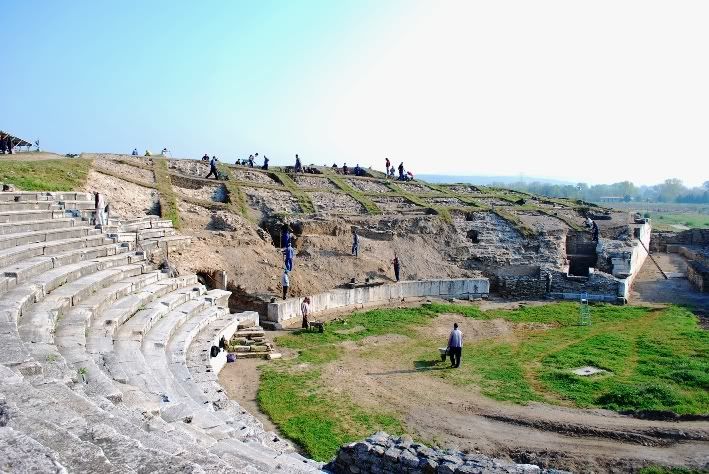Excavating the Ancient City of Stobi
For more than a century the ancient city of Stobi - the capital of Macedonia Secunda - has been attracting scientists from all over the world to reveal its secrets. The first historiography records that mention Stobi are provided by the Roman historian Titus Livy, and concern the victory of the Macedonian king Philip V over Dardanians in the vicinity of Stobi. In A.D. 69 Emperor Vespasian granted Stobi the rank of municipium and the right to mint its own coins. The salt trading and the good strategic position between two rivers, on the cross-road of Via Axia and branches of Via Diagonalis and Via Egnatia, brought to the city a long-lasting prosperity from the first to third century A.D. In 267/69 Stobi suffered from raids of Goths and Herules, but was rebuilt after their devastating attacks. In the fourth century A.D., the city became the seat of mighty bishops, and in the fifth century – the capital city of Macedonia Secunda. It was devastated several times by the raids of "Barbars", but an earthquake in A.D. 518 marked the end of the urban living in Stobi.
Season 2010 envisions excavations will take place in three sectors: the Theater (built in the second century A.D.), the Western Necropolis (first century B.C. - fourth century A.D.) and an ancient Roman temple. Two field school sessions are available in 2010. The program includes the following modules: fieldwork; educational course (lectures, workshops and field training in Early and Late Roman Archaeology), and excursions to the old towns of Prilep and Bitola, the archaeological site of Heraclea Lyncestis as well as to Ohrid (UNESCO World Heritage Site). All participants will receive a BH Field School Certificate of Attendance.
Detailed information about this project is available at: http://www.bhfieldschool.org/bh2010stobi.html
Online application form: http://www.bhfieldschool.org/apply.php
Periods of occupation: Late Hellenistic, Roman, Early Byzantine Second century B.C. – Sixth century A.D.)
Location: Macedonia
Session dates: Session 1: August 7-21, 2010; Session 2: August 22 - September 5, 2010




0 Comments:
Post a Comment
<< Home